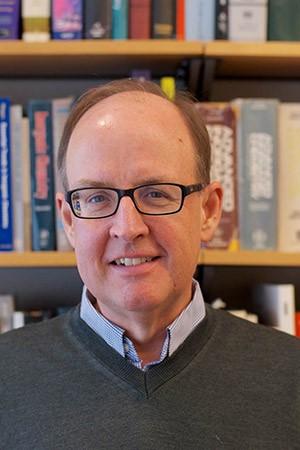Michael Hopkins is a Professor in Chemistry and the College.
As senior advisor to the provost, Mike leads the office’s work on academic space allocation, long-range space planning, and capital planning, and serves as project executive on major capital projects.
Mike joined the Office of the Provost in 2017, serving until July 2024 consecutively as vice provost for strategic planning, vice provost, and vice provost for research infrastructure. His portfolio included the areas above and, in these different roles, leading the office’s planning for computational, data science, and molecular engineering initiatives; the promotion of faculty for high-profile awards and honors; campus sustainability; and oversight of academic information technology policy and initiatives, as well as contributing to operating budget planning. He was also the Office of the Provost’s representative on the University’s central operational planning group during the COVID-19 pandemic.
Prior to joining the Office of the Provost, Mike served for four years as deputy dean of the Physical Sciences Division, where his portfolio included strategic planning, oversight of the division’s master’s degree programs, and development of the division’s graduate student recruiting and fellowship strategy. Earlier, he served as chair of the Department of Chemistry for six years, during which time he led planning and design for the renovation of the Searle Chemistry Building and the department’s space in the Gordon Center for Integrative Science; led fundraising and design for the Searle Cleanroom, of which he was the founding director; and developed the department’s faculty expansion plan.
Mike’s research lies in three areas: the exploration of new light-absorbing catalysts with applications in organic synthesis and the production of renewable fuels from solar energy; the development of new methods for organizing nanomaterials on surfaces; and the discovery of inorganic X-ray contrast agents. He earned his BA from the University of California at San Diego and PhD from the California Institute of Technology and was then a Director’s Postdoctoral Scholar at Los Alamos National Laboratory. Prior to joining the faculty of the University of Chicago in 1999, he was a member of the faculty at the University of Pittsburgh, from which he received the Chancellor’s Distinguished Research Award. Mike is a Fellow of the American Association for the Advancement of Science; a recipient of fellowships from the Alfred P. Sloan, David and Lucile Packard, and Camille and Henry Dreyfus foundations; and a recipient of the Arthur L. Kelly Prize for Exceptional Faculty Service.
